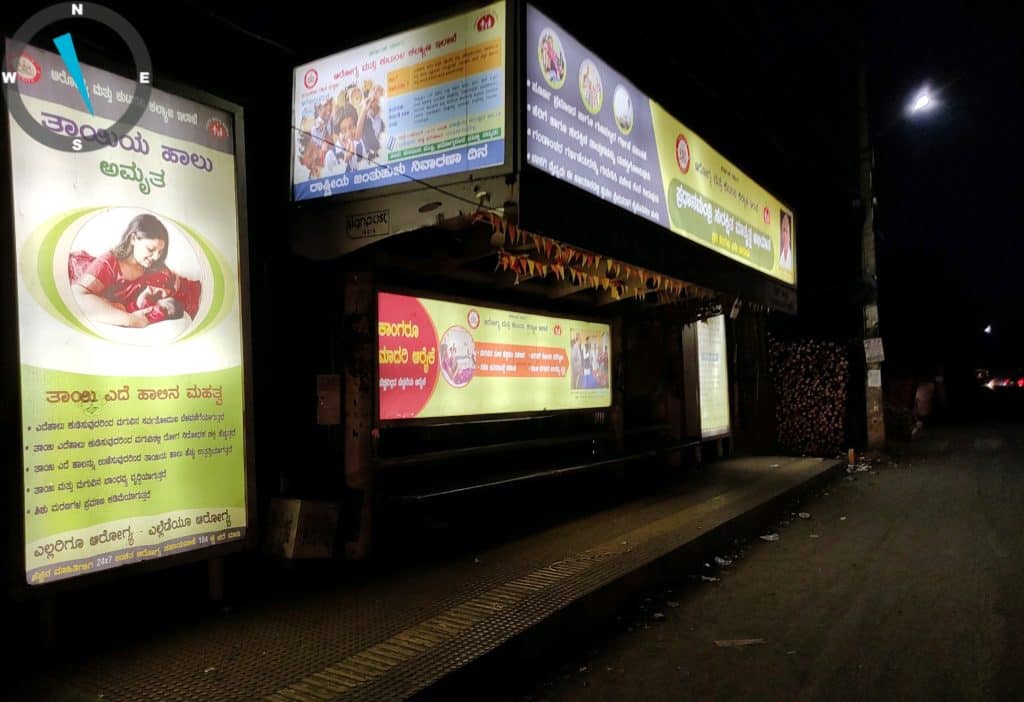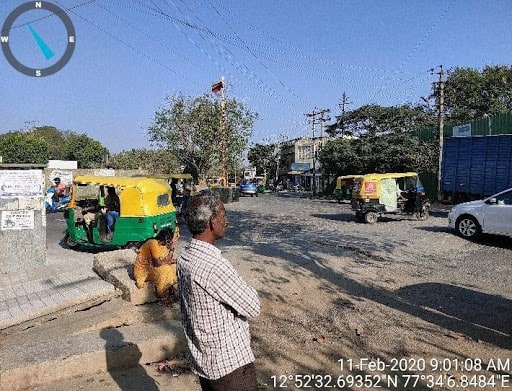[This article is part of the Bengaluru Moving series, in which citizens share their vision for BMTC post COVID. In this article, two researchers share their findings on easing bus commute for older adults. The series is published in collaboration with Radio Active’s #BengaluruMoving campaign.]
For many older adults in Bengaluru, the bus is not just a transport mode. Their nostalgia surrounding the bus is immense. Older adults share memories of using the erstwhile Bangalore Transport Service (BTS) bus to go to work, to visit the lush green Cubbon park on weekends; going to Majestic to catch a bus to their hometown and sometimes just having a fun ride in the double-decker bus.
With time, the city has grown denser and bigger. Today, amid the COVID-19 pandemic, as older adults struggle to access work, hospitals, markets and religious places, the bus is no more a safe and soothing memory for them. They face multiple physical, financial and safety barriers to hop on to their once dear bus.
Using data from a qualitative research study conducted in Bengaluru early this year, we present some measures the BMTC (Bangalore Metropolitan Transport Corporation) can take to ensure a better travel experience for older adults.
Let them in
Many older adults active in the workforce are employed in unorganised sectors, with minimal social security. They have to be mobile to seek work and healthcare, and to carry out routine activities. BMTC buses are central to their lives.
But post COVID-19 lockdown, the stringent measures restricting older people on buses have made their lives difficult. The livelihood, healthcare and social lives of older adults who cannot afford private or intermediary transport have been endangered. BMTC needs to accommodate the different needs of older adults and not place restrictions on their travel as was done during the abrupt lockdowns.
Affordable fares
Many older adults live on meagre sums, and the BMTC charging one of the costliest bus fares in the country adds to their financial woes. With rising healthcare costs and living expenses, the elderly find it challenging to afford bus tickets and hence end up reducing their travel radius.
Basappa, 60, who works as a security guard in an apartment, says:
“… Can we pay and go daily? It is impossible. Because we won’t get payment on time for that month. If we have to be paid on 10th, sometimes it could be 15th, 18th or even 20th. How can we depend on that and buy a ticket daily? Nowadays there is no money with the poor, it circulates only among the rich. Unemployment is high.”
Similarly, 65-year-old Rudramma, a retired pourakarmika (waste management worker), says:
“We need to have at least a hundred rupees to go and come. Who will give us money? The pension comes once in three months, if they have to give for two months, they only give for one month and will not give the other month. … If they give us free bus or free auto, we can go to some temple or a hospital.”
Though BMTC offers a concession for senior citizens, the fares are still unaffordable to many older adults who do not have a regular income or pension.
Frequency is freedom
As Jarrett Walker, a transit consultant once said, the frequency of bus service is freedom. Frequency enables commuters to take trips with less waiting time and enables spontaneous trips. Despite reserving a few seats, the crowded buses make it difficult for older adults to find a seat.
The problem has worsened post-pandemic with social distancing norms. Yes, frequency is expensive, but it does improve the overall travel experience, with better chances of getting a seat and lesser transit time.
As 78-year-old Nanjamma, who works as a cook, says:
“I need to go to Basavanagudi daily for work. If I am late one day also, it is a problem. These buses do not come on time. If I miss one, I have to wait for 20-30 minutes. Like this I have to catch three buses to go to work.”
Frequency is essential, but is ineffective if the service timings are unreliable and inconsistent. Post pandemic, bus schedules have been ad hoc, and many older adults do not have access to these changing bus schedules.
Usable bus shelters
Many designated bus stops in the city do not have the necessary infrastructure like roof, seating, or walkable pavement. Bengaluru’s scorching afternoons in recent years, the unpredictable rains and the physical distancing norms make it difficult for older adults to wait for buses without proper shelter.

Figure 1 
Figure 2
The design of many bus stops is such that there is a disparity in height between the bus stop platform, the road, and the steps of the bus. The height of the bus shelter and the steps of the bus need to be aligned. This will minimise the chance of a fall or any physical pain while boarding the bus.
Second, the lighting in many bus shelters is minimal. The low visibility in and around the bus shelter affects the confidence of older adults to walk and wait there. Sufficient lighting needs to be ensured in the vicinity of bus shelters.

Lastly, basic information on the arrival and departure status of buses needs to be displayed at bus stops. This will reduce waiting time, and make travel physically less stressful for older adults.
Communicate
BMTC currently has an active social media presence. But many older adults are not technologically equipped to use a smartphone, fill online surveys, send an email, or communicate with the BMTC social media handles. Their voices are not heard in public consultations due to the lack of an accessible grievance platform. Some of the unique needs of older adults – such as shuttle services in neighbourhoods, and emphasis on safety – are often ignored. Post pandemic, it is vital for BMTC to hear the voices of older adults by providing alternative and easy-to-use feedback mechanisms.
Providing safe services, decent bus shelters, reduced fares and having direct conversations will help older adults ride the BMTC again and stay connected to their dear Bengaluru.
Note: Pseudonyms are used in the article to maintain anonymity and confidentiality of the participants
[Funding Source Declaration: This work is part of the research project ‘Inclusive Cities through Equitable access to Urban Mobility Infrastructures for India and Bangladesh’ (PI: Prof. A. Bailey) under the research programme Joint Sustainable Development Goal research initiative with project number W 07.30318.003, which is financed by the Dutch Research Council (NWO) and Utrecht University, The Netherlands.]
Also read
► Opinion: How BMTC bus services can be cheap, clean and safe during COVID
► Remember Bengaluru’s minimal traffic during lockdown? Here are nine pointers to sustain it
► How should BMTC buses be run now, given social distancing challenges?
► Reducing BMTC fares = Reducing congestion, emissions, losses


Some time back there was a news paper article tha senior citizens are not allowed to commute in BMTC busses. Is it true and if yes still the rule continues that senior citizens are not allowed to use BMTC Bus. Would like to have a reply from the authorities. Thanks